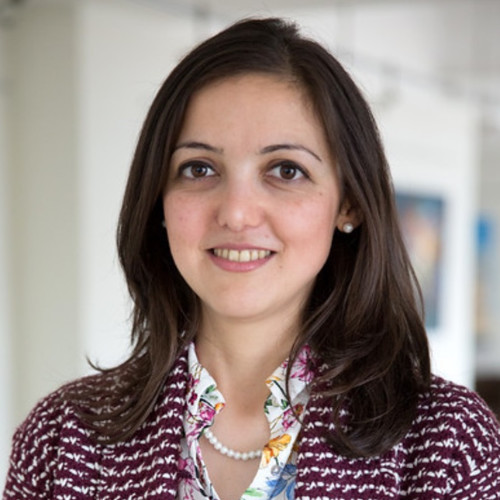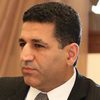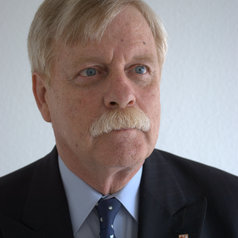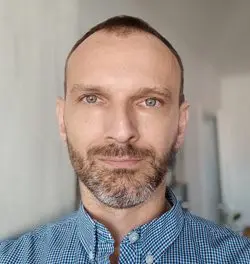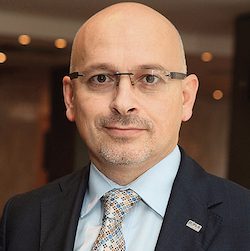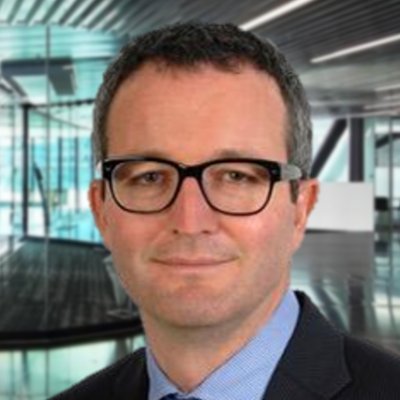Summit in a Minute
Learn about inspiring discussions during the Summit by following the videos, podcasts or texts.
-
Summit in a minute: Tereza Horejsova
-
Summit in a minute: Amandeep Singh Gill
-
Summit in a minute: Kishan Rana
-
Summit in a minute: Ayisha Piotti
-
Summit in a minute: Emmanuella KariKari Agyeman
-
Summit in a minute: Jerome Bellion-Jourdan
-
Summit in a minute: Mabel Gomez Oliver
-
Summit in a minute: Alex Sceberras Trigona
-
Summit in a minute: Hanane Boujemi
Malta’s timely contribution to digital diplomacy
Malta was the host to a successful summit on digital diplomacy, where experts from around the world convened to help shape the ongoing debates on pressing digital governance issues. Two intensive days of discussing concerns, discovering common viewpoints, and proposing ways of overcoming challenges.
It was also a timely gathering of collective wisdom at a time when geopolitical conflict is exacerbating the divides. Now, more than ever, societies need to come together to develop solutions for global issues, to achieve the sustainable development goals, and to set an example for future generations.
The summit was a fine example of how experts from different backgrounds can dialogue together. The topic of digital governance is broader than it looks: digitalisation is everywhere, affecting every facet of our lives. Solutions for digital governance issues are solutions for the world’s toughest issues. As the need for global cooperation intensifies, let the summit inspire more conversations.
From multilateral to multilayered meetings
As multilateral meetings become increasingly hybrid, the codified rules of procedure and the established practice are put under pressure of adapting to the new environment. The simplicity of meeting within the limitation of four walls give way to the complexity of convening in simultaneity and extension of cyberspace. The multilateral gives way to multilayered.
In hybrid meetings, the levels of interaction are multiplied, the types of relations are diversified, the record of deliberations are more easily codified. Diplomacy is even more intricate, and management of its confidentiality is even more delicate. Virtuality strives for equality since physical is more visual. ‘Hybrid attendance’, combining the two, could be a real advantage, thus adding a stretch of space and a time zone swap. Hybrid moderation would the essential operation for running the meeting. Delegations that master the digital yet are still comfortable with the physical would maximize the value, and chairs of meetings that incentive both would have the most virtue.
How can we prepare diplomats for 2032 and beyond?
Recent changes in communication between heads of government, and the development of various internet programs such as TikTok and Instagram have changed forever the role of diplomats as the main contact and negotiation points for governments at all levels and populations. By 2032 these changes will have introduced many analysis tasks in place of the more formal diplomacy tasks of the past.
This panel is a good opportunity to open dialogue on these points and also to consider who the diplomats of the future will be. They will come from a set of diverse backgrounds and from organisations beyond foreign ministries and governments.
This will deepen the differences now evident between bilateral and multilateral diplomacy and introduce fresh thinking about how best to manage a foreign ministry in 2032.
How can we prepare diplomats for 2032 and beyond?
Digital world is profoundly changing our society, and international relations…’ – that’s what we already know. But we can now say with certainty: there is no more cyberspace; it has become fully integrated with every segment of our real life. See: cyber-attacks can leave us without electricity or put hospitals to halt; personal data scattered around can irreversibly reveal our personalities, our secrets, hopes and desires; AI can decide on our bank loans and scholarships for our children…
Can we turn back this tide of worries and risks – to make technology a good servant, rather than a bad master? Perhaps – if we now invest in the education of coming generations. The forthcoming Summit is a place to assemble bright and experienced minds to prepare the basis for the future of (digital-yet-real) diplomacy. Knowing Diplo ‘inside out’ for 20 years – I am eagerly looking forward!
Shaping our common future
While every generation before us has experienced changes they felt were ‘tectonic’ or ‘paradigm-changing’, most of them actually had to deal with either socioeconomic developments and progress, or geo-strategic shifts of power.
Because of the rapid development of technology, our generation is dealing with changes that affect the very foundation of our existence, i.e. the physical realm. The increasing digitalisation is forcing us to simultaneously live in both the physical and digital world, thus affecting every single aspect of our lives.
In other words, digital is no longer an entity in and of itself, but an integral part of each step we make, from the moment we wake up, to the moment we go to sleep.
This is why it is crucial for every one of us to get involved in actively shaping our common future before it is too late, and for me, this Summit may not be the first, but is definitely an important step in this direction.
The human touch of diplomacy and the digital trace of technology
Junior diplomats of today Ambassadors of tomorrow. That is why adaptation to the new environment of the future starts with the recognition of indicators of change at the moment. Diplomacy’s traditional functions of representation, the channel of communication, reporting based on field information, and consular services provision will not only have to adjust each in form or content to a new ecosystem but will have to assume new relative weights towards each other. It will be both a competition and a relay race at the same time.
In short, diplomats would have to magnify what is human and capitalize on all what is machine. In doing so, they will benefit from the new digital tools and befit traditional human kits. As meetings become hybrid, so will diplomacy amalgamating human touch with digital trace to reach the same goal of a bilateral/multilateral relationship that aims to strike the balance of serving national interest while preserving a collective purpose. The methods will substantially change but the objectives remain essentially the same.
How to make us close to both fellow humans and machines of the future?
In Malta, we will look ahead to the future of diplomacy by reflecting on the past 20 years of Diplo. Diplo’s experience tells us that the best way to deal with the uncertainty of our era is to start with the certainty of the role of diplomacy in society.
One certainty over time is that diplomats’ function is to represent interests through negotiations. It was thousands of years ago when our ancestors realised it was better to hear out the messenger than to eat him. It is still the case today. And it will be the case in the future as long as humanity exists.
In this ‘back to basics’ perspective, a few questions arise:
- Who will the diplomat represent?
- What are the critical interests that diplomats will protect?
- What will negotiation processes evolve into?
Another certainty is the impact of technology. Diplomats must learn how to live and work with machines. AI will alter many diplomatic routines, from project management and writing regular reports to organising events. You will see how AI can help with these tasks further in Malta.
While getting closer to machines, diplomats will have to get closer intellectually and emotionally to the people they represent or negotiate with.
By knowing how people and technology work together, we can adapt to these changes with creativity and without fear.
Join us at the Summit in Malta and online on this important journey!
How can we prepare diplomats for 2032 and beyond?
An open, free and secure digital negotiation platform for all?
A digital message for my 10-year-old daughter, for all the children and future diplomats, and the generations to come when 8 billion of us now share the same ecosystem called planet.
From her father, a negotiator convinced, like many diplomats and people around the world, that negotiation as an art and tool allows to forge common ground, to turn the impossible into the possible, to live together as human beings without further destruction of our planet.
I have a wish that, by 2032, when the Diplo turns 30:
# We will think carefully before setting up (digital or on site) new “intergovernmental working groups”, “tasks forces”, “groups of Friends”, “high level panels” or other “multistakeholder initiatives”, but we will have tested and scaled up how technologies can be used for innovative negotiation formats fed by reliable Artificial Intelligence-integrated data systems, duly checked and open to all;
# We will not have drowned further in the temptation of dividing our world into “friends” vs “enemies”, “good” vs “evil”, “peace lovers” vs “war mongers” taking us back to the prehistory of “my tribe” versus “their tribe” but we will have revived and strengthened the practice of negotiation with a smart use of new technologies as a pathway to define our living together;
# We will no longer be locked in our (still very much) top-down structures called “international organizations”, “governments”, “business”, “academia”, “civil society”, but we will have used tech as a connector for each human being to remember that he/she/they was a child before negotiating a way on the choppy sea of life and should be valued for his/her/their individual contribution to define our collective future – be he/she/they a President or diplomat, CEO or worker, NGO director or intern, law enforcement officer or drug addict, elderly or students, but also scientists, farmers, artists to name just a few;
# We will no longer use “inclusiveness” and “connectedness” (just) as buzz words in speeches, reports and fundraising proposals, but we will witness that Chinese, Americans, Russians, Ukrainians, Swiss, Maltese, Tolupans, Savoyards can plug in (each individual with each a diverse set of identities, affiliations, beliefs and needs) to participate in an open, free and secure multiple language public digital platform hosted by an inclusive United Nations of “We the people” to negotiate the future they want, with diplomats acting as facilitators and moderators to forge common ground;
# We will not further undermine the profound meaning of rights and aspirations such as equality and dignity by letting the (digital) gap widen between the few privileged and the rest, between those who can afford a journey to outer space while others die at sea, between those who eat and drink in the metaverse while others are left behind with starvation and pandemic, but find ways to grasp with our context of “power and history” as rightly recalled by the UNSG Envoy on Technology Amandeep Singh Gill and turn the egos, competition for power and resources into driving forces to protect our global commons and to deliver global public goods as called for in Our Common Agenda;
# By 2032, the Global Digital Compact will not be remembered as a digital process and a digital outcome, but it will still be a lively reference point for my daughter and the next generations to come to hold us accountable as diplomats, and all at the Summit and moving forward, on our ability to tackle issues as diverse as climate change, plastic pollution and human augmentation;
An open, free and secure digital negotiation platform for all? As someone from the Alps, I trust our gathering in Malta and online allows us to walk the talk with ambition and determination, and to get us from the valley to the summit of a truly inclusive world “leaving no one behind”, despite the falling rocks and the melting glaciers…
Digital food for thought open to (digital or in person) comments.
And congratulations to Dr Jovan Kurbalija, Executive Director of the DiploFoundation and to the Diplo team and partners for the pioneer tracks to build the future of digital diplomacy and governance, and the future of negotiation!










